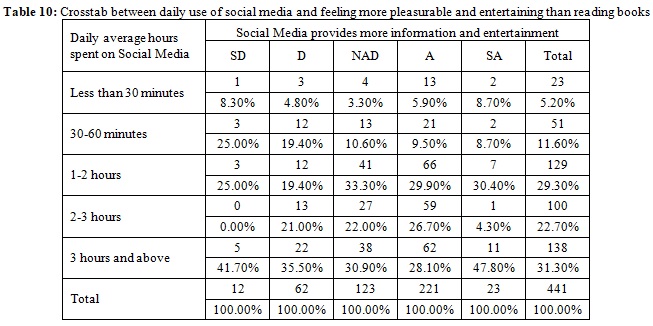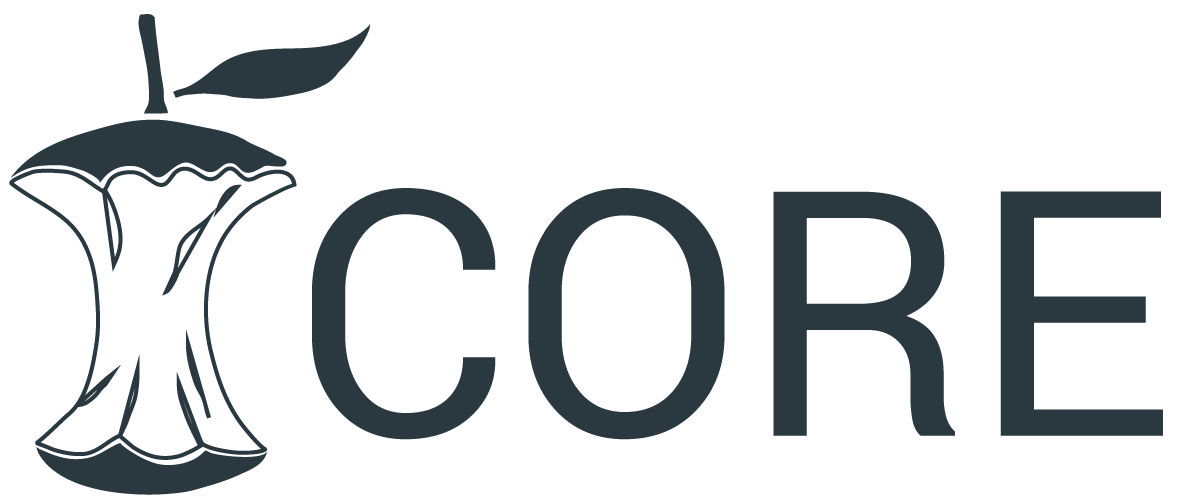A Study on the Association between Social Media Consumption and Reading Preferences among College Students in Mizoram
DOI:
https://doi.org/10.54741/mjar.3.2.5Keywords:
social media consumption, reading preferences, college and university students, associationAbstract
The article discusses the impact of social media use on reading habits among college and university students in Mizoram, a state in northeastern India. Despite having a strong literary tradition and high literacy rates, there are concerns about declining reading habits among students, and social media is thought to be contributing to the problem. The article reviews relevant literature, including studies from other countries, and emphasizes the need for responsible social media use and guidance to ensure its positive impact on academic performance. The study aims to investigate the relationship between social media use and reading habits among students in Mizoram and fill the gap in knowledge. It also provides background information about Mizoram, its population, culture, and languages. The study provides insights into the demographics of the surveyed population, their leisure activities, and their reading habits. The study found a significant positive association between social media addiction and the amount of time spent on social media among college and university students, but mixed results regarding the association between social media use and reading habits and perceptions.
Downloads
References
Abubakar, A. M., Ahmad, A., & Aliyu, U. A. (2020). Positive and negative effects of social media on academic performance among undergraduate students of Bayero University, Kano. Asian Journal of Education and Social Studies, 15(4), 1-10.
Ahmad, Z. (2020). Parent’s role in promoting reading habits among children: An empirical examination. Library Philosophy and Practice (e-journal). https://digitalcommons.unl.edu/libphilprac/3958.
Ajayi, S. O., & Akole, O. B. (2018). Impact of social networking on reading habits of N.C.E students of college of education, Ikere-Ekiti, Ekiti State, Nigeria. International Journal of Research and Analytical Reviews, 5(2), 7-13.
Akande, S. O., & Oyedapo, R. O. (2018). Effects of social media use on the reading habits of selected high school students in Nigeria. Information Impact: Journal of Information and Knowledge Management, 9(1), 46–58. https://doi.org/10.4314/iijikm.v9i1.5.
Alsaeedi, Z. S., Ngadiran, N. B. M., Kadir, Z. A., & Altowayti, W. A. H. (2021). An overview of reading habits and medium preference among university students. International Congress of Advanced Technology and Engineering, ICOTEN 2021, 1, pp. 44–53. https://doi.org/10.1109/ICOTEN52080.2021.9493486.
Andayani, U., & Maryam, S. (2019). The portrait of reading habit and interest of tangerang city’s community. 302(Icclas 2018), pp. 219–221. https://doi.org/10.2991/icclas-18.2019.56.
Andreassen, C. S., Pallesen, S., & Griffiths, M. D. (2017). The relationship between addictive use of social media and video games and symptoms of psychiatric disorders: A large-scale cross-sectional study. Psychology of Addictive Behaviors, 31(8), pp. 959–964. https://doi.org/10.1037/adb0000310.
Atteh, E., Assan-Donkoh, I., Mensah, Y. A., Boadi, A., Badzi, S. C., & Lawer, V. T. (2020). A thoughtful overview of social media usage among students and its impact on their academic work. Asian Journal of Advanced Research and Reports, 8(3), 30–39. https://doi.org/10.9734/ajarr/2020/v8i330201.
Balan, S., Katenga, J. E., & Simon, A. (2019). Reading habits and their influence on academic achievement among students at Asia pacific international university. Abstract Proceedings International Scholars Conference, 7(1), pp.1490–1516. https://doi.org/10.35974/isc.v7i1.928.
Brook, C. A., & Willoughby, T. (2015). The social ties that bind: Social anxiety and academic achievement across the university years. Journal of Youth and Adolescence, 44(5), 1139–1152. https://doi.org/10.1007/s10964-015-0262-8.
Chetty, K.M., & Kishore, A. (2017). Effects of social media and electronic media on the reading habits of engineering students at sri kalahastiswara institute of technology. International Journal of Research in Library Science, 3(1), 18–23.
Datareportal.com. (2022). Digital 2022: Global overview report. Retrieved from: https://datareportal.com/reports/digital-2022-global-overview-report.
Erdem, A. (2015). A research on reading habits of university students:(Sample of Ankara University and Erciyes University). Procedia-Social and Behavioral Sciences, 174, 3983-3990.
Guthrie, J. T., Wigfield, A., Barbosa, P., Perencevich, K. C., Taboada, A., Davis, M. H., & Tonks, S. M. (2004). Increasing reading comprehension and engagement through concept-oriented reading instruction. Journal of Educational Psychology, 96(3), 403-423.
Kuss, D. J., & Griffiths, M. D. (2017). Social networking sites and addiction: Ten lessons learned. International Journal of Environmental Research and Public Health, 14(3). https://doi.org/10.3390/ijerph14030311.
Lalzawmtluangi, K., Vanlalruata, & Ratnamala, V. (2021). Mapping online reading behaviour of university students: A case study of Mizoram university, Aizawl. Library Philosophy and Practice, 2021(August), 1–15.
Lalnunpuii, E., & Ngurtinkhuma, R. K. (2021). Usage of social networking sites by the students of Mizoram college of nursing, Aizawl, India: A study. Library Philosophy and Practice, 2021(November), 1–9.
Mushtaq, A. J., & Benraghda, A. (2018). The effects of social media on the undergraduate students’ academic performances. Library Philosophy and Practice.
Nadkarni, A., & Hofmann, S. G. (2012). Why do people use Facebook? Personality and individual differences, 52(3), 243-249.
Ndaku, A. J. (2013). Impact of social media on students’ academic performance. A study of students of university of Abuja. Unpublished B. Sc. Dissertation. Department of Mass Communication Management and Social Sciences. Caritas University, Enugu, Nigeria.
Owusu-Acheaw, M., & Larson, A. G. (2014). Reading habits among students and its effect on academic performance: A study of students of Koforidua Polytechnic. Library Philosophy and Practice, 2014(1).
Riehm, K. E., Feder, K. A., Tormohlen, K. N., Crum, R. M., Young, A. S., Green, K. M., Pacek, L. R., La Flair, L. N., & Mojtabai, R. (2019). Associations between time spent using social media and internalizing and externalizing problems among US youth. JAMA Psychiatry, 76(12), 1266–1273. https://doi.org/10.1001/jamapsychiatry.2019.2325.
Singh, M., Amiri, M., & Sabbarwal, S. (2017). Social media usage: positive and negative effects on the life style of Indian youth. Iranian Journal of Social Sciences and Humanities Research UCT. J. Soc. Scien. Human. Resear, 5, 123–127.
Talaue, G. M, AlSaad Ali, AlRushaidan Naif, AlHugail Alwaleed, & AlFahhad Saad. (2018). The impact of social media on academic performance of selected college students. International Journal of Advanced Information Technology (IJAIT), 8(4/5), 27-35.
Tenopir, C., Mays, R., & Wu, L. (2011). Journal article growth and reading patterns. New Review of Information Networking, 16(1), 4–22. https://doi.org/10.1080/13614576.2011.566796.

Downloads
Published
How to Cite
Issue
Section
License
Copyright (c) 2023 Indira Devi Nongmaithem, L. S. Sharma, Thongam Dhanajit Singh, HT Lalhmachuani

This work is licensed under a Creative Commons Attribution 4.0 International License.
Research Articles in 'Management Journal for Advanced Research' are Open Access articles published under the Creative Commons CC BY License Creative Commons Attribution 4.0 International License http://creativecommons.org/licenses/by/4.0/. This license allows you to share – copy and redistribute the material in any medium or format. Adapt – remix, transform, and build upon the material for any purpose, even commercially.









